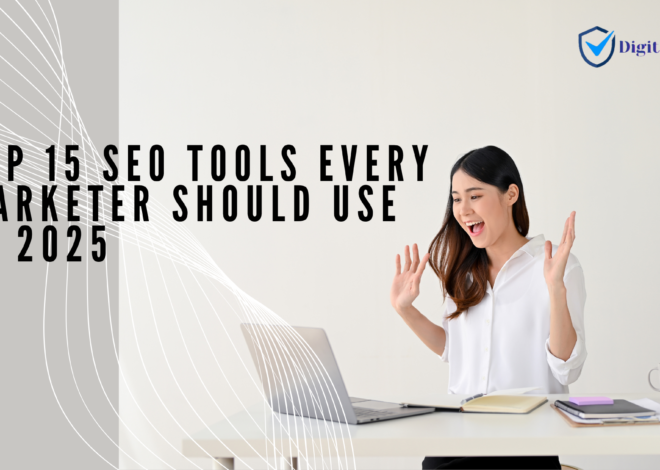
How to Get a Job in SEO: Detailed Steps for Building a Career in Search Engine Optimization
The world of Search Engine Optimization (SEO) is dynamic and growing. With more businesses understanding the importance of ranking well on search engines, the demand for SEO professionals has never been higher. Whether you’re just starting or switching careers, here’s a more detailed guide to help you secure your first job in SEO.
Don’t Follow the Traditional Path
It’s a common misconception that you need years of experience or a specific degree to land a job in SEO. While experience helps, employers in the SEO industry often prioritize practical knowledge, passion, and adaptability over formal qualifications. The field is constantly evolving, and employers know that being able to learn and adapt quickly is crucial.
If you’re coming from a different career, don’t feel discouraged. SEO is one of those fields where non-traditional backgrounds can be an asset. Whether your experience is in marketing, content writing, data analysis, or even IT, many of the skills you’ve gained can be applied to SEO. Highlighting these can set you apart from other applicants.
Be Transparent About Your Lack of Experience
If you’re new to the field, it’s important to be honest about your limited SEO experience while showing a strong willingness to learn. Start by emphasizing transferable skills and showing potential employers your ability to grow. It’s also a good idea to build a portfolio of small projects. For example, optimize a personal blog or volunteer to help optimize a friend’s website to showcase your budding SEO skills.
Start with Core Technical Skills
Mastering technical SEO is essential for landing your first job. At the heart of SEO is making websites accessible and understandable to search engines like Google. Here are some of the most important technical areas to focus on:
- HTML Basics: Understanding HTML (HyperText Markup Language) is key. You don’t need to be a developer, but knowing how to read and modify basic HTML tags such as title tags, meta descriptions, and header tags (H1, H2, etc.) is crucial. These are the foundation of on-page SEO.
- Crawling and Indexing: Learn how search engines crawl (or scan) web pages and index them in their databases. Tools like Google Search Console allow you to see how Google is interacting with your website and what errors might be preventing it from ranking well.
- Page Speed Optimization: Page speed is a major ranking factor. Tools like Google Page Speed Insights and GTMetrix can help you identify what’s slowing down a website and offer recommendations for speeding it up. Minimizing file sizes, optimizing images, and leveraging browser caching are all common page speed improvements.
- Mobile Optimization: Mobile-first indexing is now standard for Google, which means the mobile version of your site is the primary version used for ranking. Ensure that websites are responsive and perform well on mobile devices.
- Structured Data: Learn about schema markup (structured data), which helps search engines understand your content better. For example, if you add structured data for a recipe page, Google may show your page in a rich snippet format, boosting visibility.
- Core Web Vitals: Google introduced Core Web Vitals as part of its ranking algorithm. These metrics measure the user experience of a website, focusing on loading speed, interactivity, and visual stability. Familiarize yourself with how these factors impact SEO.
Use Transferable Skills to Your Advantage
Your existing skills might already align with key aspects of SEO. For instance, if you have experience with:
- Writing: Strong writing and communication skills are invaluable for creating SEO-optimized content. Understanding how to write content that both users and search engines love is crucial. Learn how to balance keyword optimization with natural readability.
- Analytics: If you’ve worked with data before, those skills can be applied to SEO. Tools like Google Analytics and Ahrefs provide insight into traffic patterns, user behavior, and backlink profiles. Being comfortable with data allows you to track performance and measure the impact of your SEO efforts.
- Marketing: If you understand broader marketing strategies, you can apply them to SEO. SEO isn’t just about ranking; it’s about driving traffic that converts. Knowing how SEO fits into the larger digital marketing picture will make you a more valuable candidate.
Think Like a Search Engine
To excel in SEO, you need to understand how search engines work. Search engines like Google use complex algorithms to rank websites. While Google doesn’t reveal exactly how these algorithms work, we know they focus on factors such as relevance, authority, and user experience.
Key Factors to Consider:
- User Intent: Google’s main goal is to serve users the most relevant and useful information. Therefore, your content must match what users are searching for. This means understanding search intent (e.g., informational, transactional, navigational) and creating content that satisfies that need.
- Backlinks: Links from other websites to yours, known as backlinks, are a major ranking factor. The more high-quality backlinks your site has, the more authority it gains in the eyes of Google. Tools like Ahrefs or Moz can help you track your backlink profile and identify opportunities for link-building.
- Content Relevance: Your content must be both relevant and valuable. This means not only including keywords but also answering users’ questions fully. Use tools like SEMRush or AnswerThePublic to discover common questions related to your keywords and build content that addresses those queries.
Stay Committed to Learning
SEO is constantly changing. What works today might not work next year, so it’s important to stay up-to-date. You can start by following industry-leading SEO blogs such as Moz, Search Engine Land, and Backlinko. These sites regularly post about algorithm changes, SEO best practices, and case studies.
Additionally, you can take online courses. Websites like Coursera, Udemy, and HubSpot Academy offer comprehensive SEO courses that cover both beginner and advanced topics. Staying committed to learning will help you stay relevant in the fast-moving world of SEO.
Keep Up with Algorithm Changes
Google’s algorithms evolve constantly. Major updates like Google Panda, Penguin, and BERT have reshaped how SEO works. While some updates focus on content quality, others might prioritize user experience or eliminate spammy techniques like keyword stuffing.
Staying informed about these changes will give you an edge. Websites like Google Webmaster Central Blog and following key influencers on Twitter can help you stay on top of the latest news. You can also subscribe to SEO newsletters that recap key changes and offer expert analysis.
Learn from SEO Experts
Networking with people already working in SEO can fast-track your learning. Attend SEO conferences, webinars, or even join online communities like Reddit’s SEO subreddit or Facebook groups. Many professionals in the industry are happy to share their knowledge.
Mentorship can also be valuable. Reaching out to SEO experts on LinkedIn or following them on social media can give you access to their insights and strategies. Having someone who can guide you can accelerate your growth and open up job opportunities.
Conclusion
Getting a job in SEO requires a mix of technical skills, a willingness to learn, and an understanding of how search engines rank content. Start by mastering the basics of technical SEO, leverage your existing skills, and focus on continuously learning. Stay up to date with algorithm changes, network with industry professionals, and think like a search engine to provide value through your optimizations.
By following these steps, you’ll be well on your way to securing a rewarding career in SEO.


